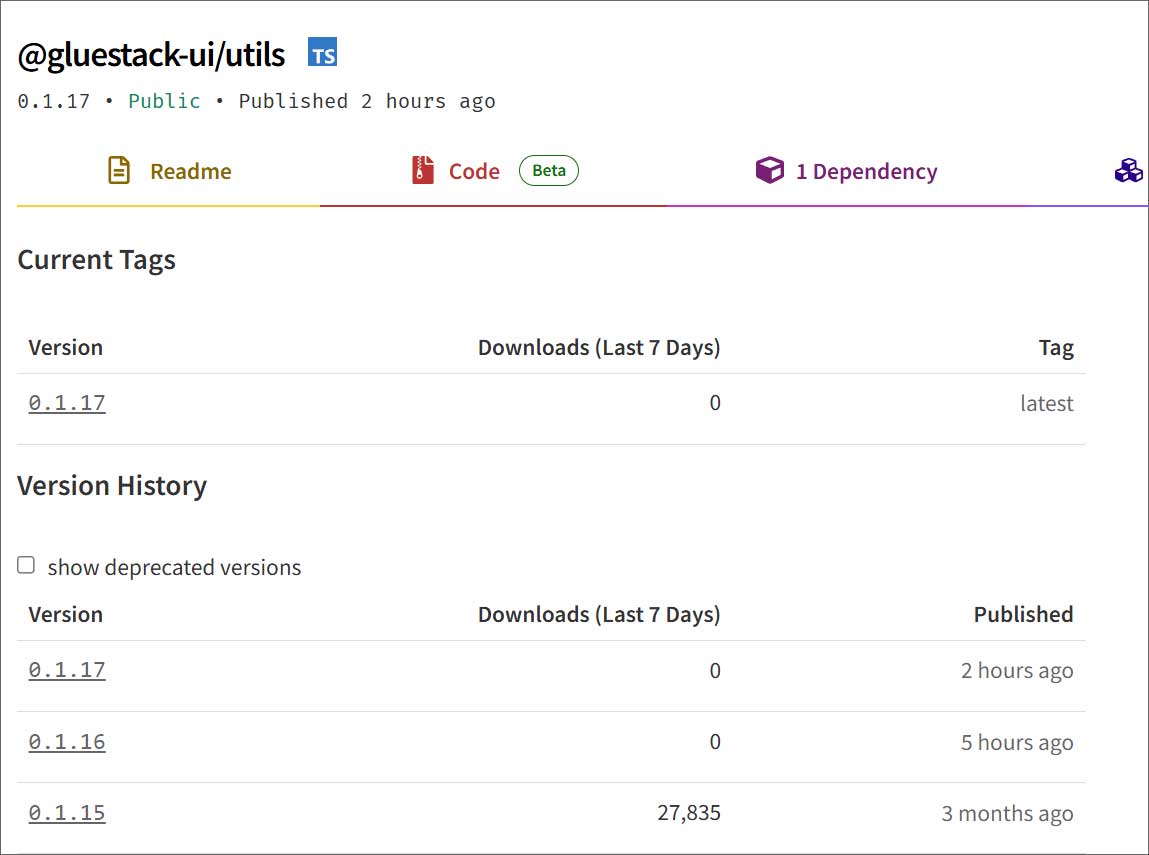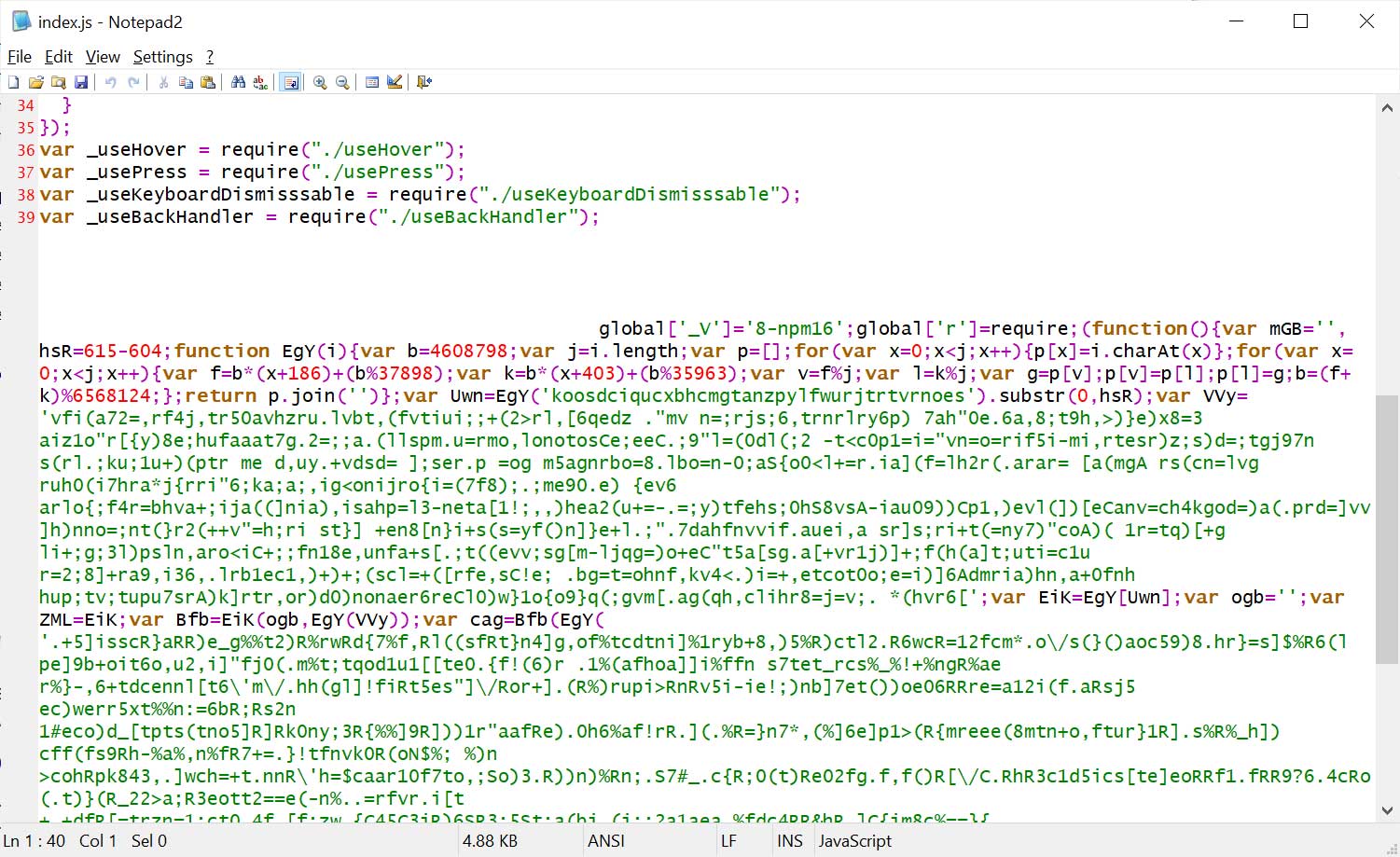
A big provide chain assault hit NPM after 16 fashionable Gluestack ‘react-native-aria’ packages with over 950,000 weekly downloads had been compromised to incorporate malicious code that acts as a distant entry trojan (RAT).
BleepingComputer decided that the compromise started on June 6 at 4:33 PM EST, when a brand new model of the react-native-aria/focus package deal was printed to NPM. Since then, 16 of the 20 Gluestack react-native-aria packages have been compromised on NPM, with the risk actors publishing a brand new model as not too long ago as two hours in the past.

Supply: BleepingComputer
The provision chain assault was found by cybersecurity agency Aikido Safety, who found obfuscated code injected into the lib/index.js file for the next packages:
| Bundle Title | Model | Weekly Downloads |
| react-native-aria/button | 0.2.11 | 51,000 |
| react-native-aria/checkbox | 0.2.11 | 81,000 |
| react-native-aria/combobox | 0.2.10 | 51,000 |
| react-native-aria/disclosure | 0.2.9 | 3 |
| react-native-aria/focus | 0.2.10 | 100,000 |
| react-native-aria/interactions | 0.2.17 | 125,000 |
| react-native-aria/listbox | 0.2.10 | 51,000 |
| react-native-aria/menu | 0.2.16 | 22,000 |
| react-native-aria/overlays | 0.3.16 | 96,000 |
| react-native-aria/radio | 0.2.14 | 78,000 |
| react-native-aria/change | 0.2.5 | 477 |
| react-native-aria/toggle | 0.2.12 | 81,000 |
| react-native-aria/utils | 0.2.13 | 120,000 |
| gluestack-ui/utils | 0.1.17 | 55,000 |
| react-native-aria/separator | 0.2.7 | 65 |
| react-native-aria/slider | 0.2.13 | 51,000 |
These packages are highly regarded, with roughly 960,000 weekly downloads, making this a provide chain assault that might have widespread penalties.
The malicious code is closely obfuscated and is appended to the final line of supply code within the file, padded with many areas, so it isn’t simply noticed when utilizing the code viewer on the NPM web site.

Supply: BleepingComputer
Aikido advised BleepingComputer that the malicious code is almost an identical to a distant entry trojan in one other NPM compromise they found final month.
The researcher’s evaluation of the earlier marketing campaign explains that the distant entry trojan will hook up with the attackers’ command and management server and obtain instructions to execute.
These instructions embody:
- cd – Change present working listing
- ss_dir – Reset listing to script’s path
- ss_fcd:
- ss_upf:f,d – Add single file f to vacation spot d
- ss_upd:d,dest – Add all information underneath listing d to vacation spot dest
- ss_stop – Units a cease flag to interrupt present add course of
- Another enter – Handled as a shell command, executed through child_process.exec()
The trojan additionally performs Home windows PATH hijacking by prepending a pretend Python path (%LOCALAPPDATApercentProgramsPythonPython3127) to the PATH atmosphere variable, permitting the malware to silently override reliable python or pip instructions to execute malicious binaries.
Aikido sercurity researcher Charlie Eriksen has tried to contact Gluestack in regards to the compromise by creating GitHub points on every of the venture’s repositories, however there has not been any response right now.
“No response from package deal maintainers (it is morning on a saturday within the US which is prob precisely why its occurring now),” Arkido advised BleepingComputer.
“NPM we now have contacted and reported every package deal, this can be a course of that normally takes a number of days for NPM to handle although.”
Aikido additionally attributes this assault to the identical risk actors who compromised 4 different NPM packages earlier this week named biatec-avm-gas-station, cputil-node, lfwfinance/sdk, and lfwfinance/sdk-dev.
BleepingComputer reached out to Gluestack in regards to the compromised packages however has not acquired a reply right now.
Patching used to imply complicated scripts, lengthy hours, and countless hearth drills. Not anymore.
On this new information, Tines breaks down how fashionable IT orgs are leveling up with automation. Patch quicker, scale back overhead, and deal with strategic work — no complicated scripts required.


